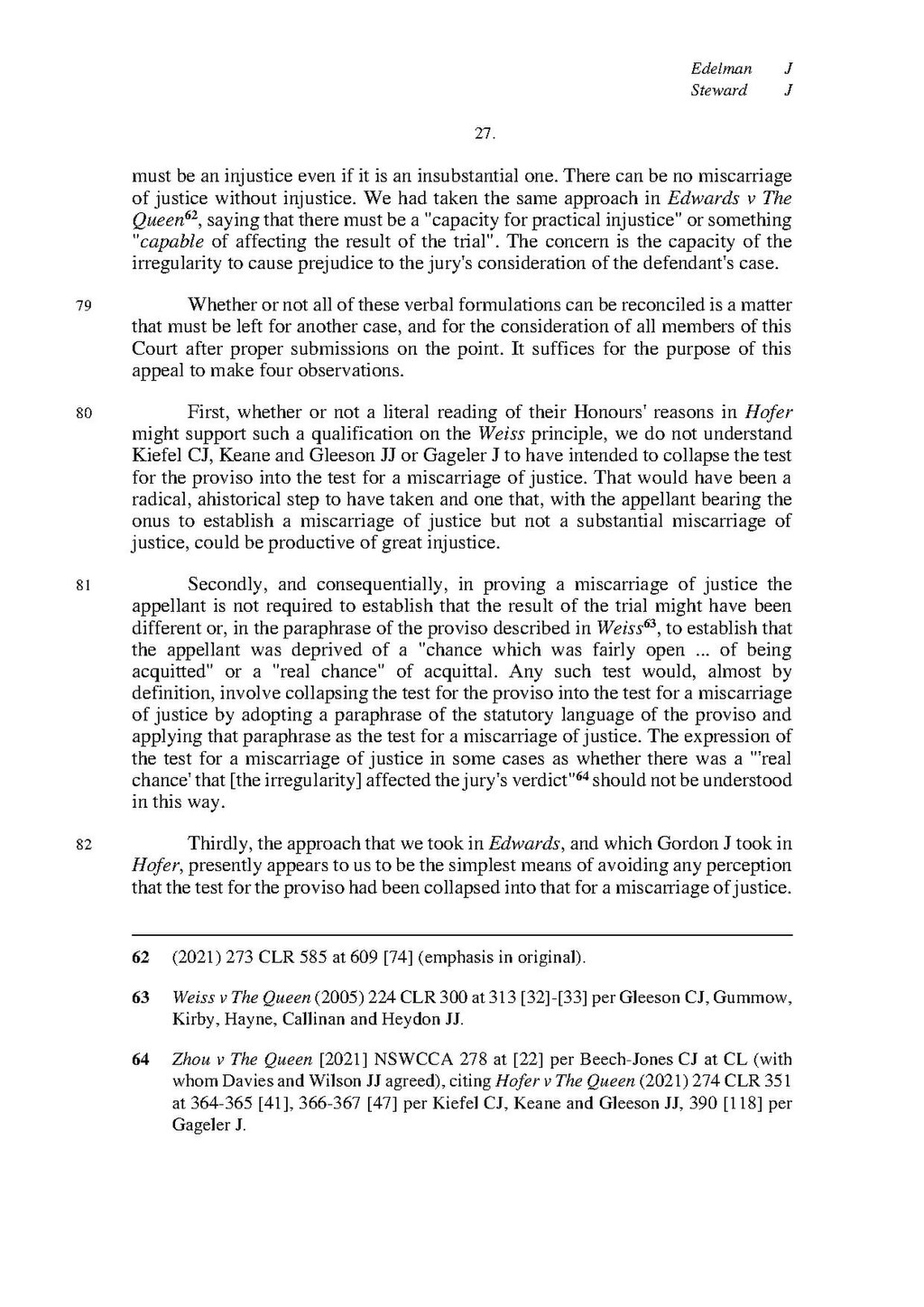Edelman J
Steward J
27.
must be an injustice even if it is an insubstantial one. There can be no miscarriage of justice without injustice. We had taken the same approach in Edwards v The Queen[1], saying that there must be a "capacity for practical injustice" or something "capable of affecting the result of the trial". The concern is the capacity of the irregularity to cause prejudice to the jury's consideration of the defendant's case.
Whether or not all of these verbal formulations can be reconciled is a matter that must be left for another case, and for the consideration of all members of this Court after proper submissions on the point. It suffices for the purpose of this appeal to make four observations.
First, whether or not a literal reading of their Honours' reasons in Hofer might support such a qualification on the Weiss principle, we do not understand Kiefel CJ, Keane and Gleeson JJ or Gageler J to have intended to collapse the test for the proviso into the test for a miscarriage of justice. That would have been a radical, ahistorical step to have taken and one that, with the appellant bearing the onus to establish a miscarriage of justice but not a substantial miscarriage of justice, could be productive of great injustice.
Secondly, and consequentially, in proving a miscarriage of justice the appellant is not required to establish that the result of the trial might have been different or, in the paraphrase of the proviso described in Weiss[2], to establish that the appellant was deprived of a "chance which was fairly open … of being acquitted" or a "real chance" of acquittal. Any such test would, almost by definition, involve collapsing the test for the proviso into the test for a miscarriage of justice by adopting a paraphrase of the statutory language of the proviso and applying that paraphrase as the test for a miscarriage of justice. The expression of the test for a miscarriage of justice in some cases as whether there was a "'real chance' that [the irregularity] affected the jury's verdict"[3] should not be understood in this way.
Thirdly, the approach that we took in Edwards, and which Gordon J took in Hofer, presently appears to us to be the simplest means of avoiding any perception that the test for the proviso had been collapsed into that for a miscarriage of justice.
- ↑ (2021) 273 CLR 585 at 609 [74] (emphasis in original).
- ↑ Weiss v The Queen (2005) 224 CLR 300 at 313 [32]–[33] per Gleeson CJ, Gummow, Kirby, Hayne, Callinan and Heydon JJ.
- ↑ Zhou v The Queen [2021] NSWCCA 278 at [22] per Beech-Jones CJ at CL (with whom Davies and Wilson JJ agreed), citing Hofer v The Queen (2021) 274 CLR 351 at 364–365 [41], 366–367 [47] per Kiefel CJ, Keane and Gleeson JJ, 390 [118] per Gageler J.
